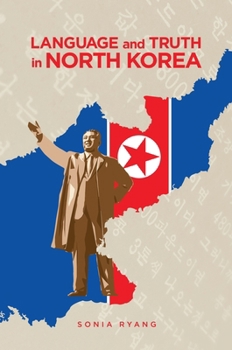Language and Truth in North Korea
In this innovative and persuasive volume, Sonia Ryang offers new ways to think about North Korea and how truth emerges over decades from within a dominant discourse. It explores four discrete yet mutually related domains of discourse: North Korea's literary purge of the 1950s-1960s; its state-initiated linguistic reforms of the 1960s-1980s; stories from a people's chronicle, more than one hundred volumes in length, documenting interactions with the Great Leader, Kim Il Sung; and the multivolume memoirs of the Great Leader himself, published in the 1990s. These texts are heterogeneous in terms of authorship, style, purpose, and genre, and many have never before been explored in Anglophone studies of North Korea. All have contributed to consolidating a North Korean regime of truth, bringing into existence a set of assumptions and shared understandings that have been regarded as true over the last half century.
Basing her work on a study of these linguistic and discursive domains, Ryang explores the ways in which power, truth, and self are indissolubly connected by function as well as efficacy and how language plays a key role in sustaining their validity. The Kim Il Sung era, from 1945 to Kim's death in 1994, forms the basis of the book, but the way truth emerged and was sustained during these decades provides important insight into how we can comprehend North Korea today. Rather than view the country as an ideological entity in order to expose its falsehood, so to speak, thinking critically about what it sees as true yields a far more productive outcome for scholarly analysis as well as general understanding. Language and Truth in North Korea will find a ready audience among those interested in North Korea from a wide variety of disciplines, including the social sciences, history, philosophy, and theology.




